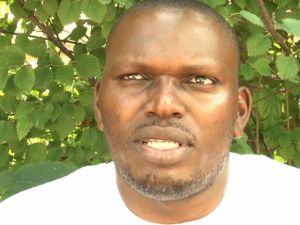OAKLAND CITY CA, AND BAUCHI CITY – BAUCHI STATE – NIGERIA SINGN A SISTER CITY AGREEMENT
October 29th, 2012
The City of Oakland, CA and Bauchi City, Bauchi State, Nigeria, recently signed the Oakland-Bauchi Memorandum of Understanding establishing the commencement of a sister city relationship between the two cities.
Earlier this month, the City Council of Oakland, CA adopted a resolution establishing an official sister-city relationship between the City of Oakland and Bauchi City in Bauchi State – Nigeria. The partnership was formed to carry out bilateral exchanges and cooperation in wide range of pursuits and mutual interests. Oakland City Councilwoman Desley Brooks spearheaded the initiative, and she says there are a number of opportunities that can develop as a result of this sister city relationship.
“We can take trade delegations there so that there is commerce that can be done, we can do cultural exchanges, we can do educational exchanges, student exchanges, artist exchanges and there’re a number of ways that we can foster the relationship. It depends on what the group wants to do and we can move in that direction. We’ve done things like that with another sister city in Ghana second city of Takoradi, we’ve sent containers of supplies over there, we’ve also had relationships with Accra, and I believe at one point we sent a fire truck out there.”
Engineer Marcel Uzegbu, a former Oakland City employee helped to negotiate the deal. He says Oakland city has a significant Nigerian population and that it was important to acknowledge them. He hopes that the partnership will help to bridge the divide between the two cities.
“The city of Oakland has been there for many years. And if you look at the public works for instance, they’ve developed so many standards, they have different ways of doing work in the city that benefits all the citizens. So those are some of the things that I was doing for the city of Oakland. So I thought by having a sister city relationship, some people from Oakland can come to Bauchi and show them how some of these things are done.”
Mallam Isa Yuguda, Governor of Bauchi State, Nigeria, noted that the West African Nation a history of good diplomatic relations with the United States and that the signing of the memorandum of understanding between the two cities was vital. Bauchi City became the tenth Sister City of Oakland, California.
“My prayer is that many more cities in America would partner with other cities in Nigeria so that we can benefit from the experiences of cities in America in development. We are going to benefit greatly from this partnership in the areas of education, healthcare, tourism, commerce, and so on and so forth. This would go a long way in generating good relationship and partnership between the city of Oakland, the people of Oakland and Bauchi State.”
Governor Yuguda says that Bauchi is home of peace, a home of hospitality, a home of tourism, a home of various cultures and a home of disciplined people who are respectful of both Islam and Christianity.
The initiation to establish a sister city relationship with the city of Oakland was led by Engineer Noah N.A. Dallaji, who is the President and founder of African Children’s Talent Discovery Foundation back in September of 2010 .
Sister City relationships with cities around the world have been in existence for several decades. They are established to foster civic, cultural, education, and business exchange between the sister cities and the countries in general.





